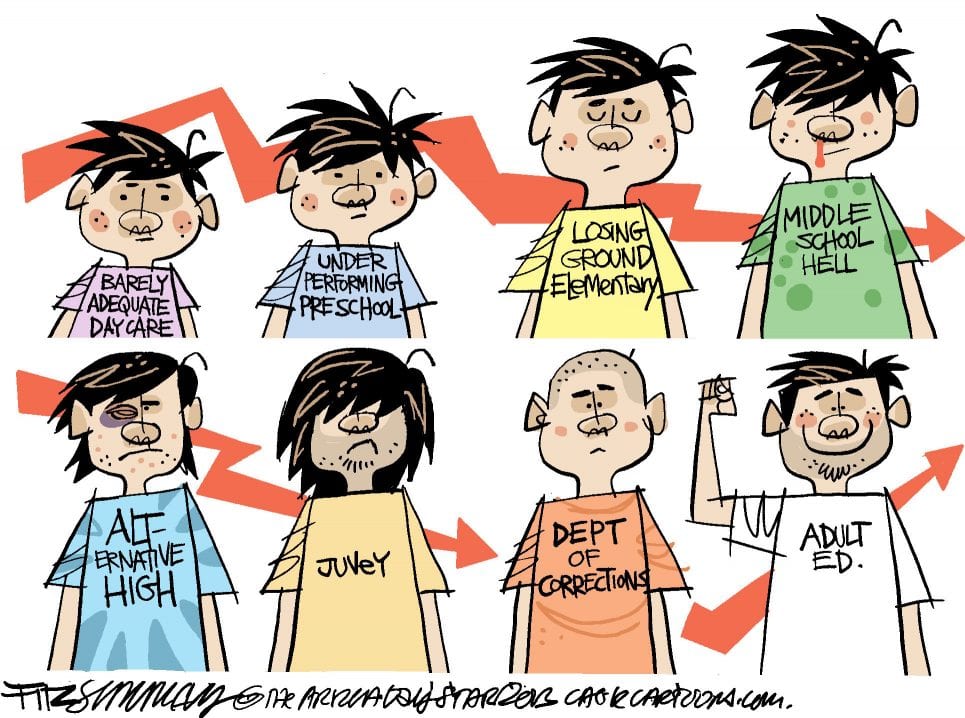BY JOE DORMAN
 In the realm of public policy, well-intentioned reforms can often have unintended consequences that lead to very negative outcomes. This will surely be the case if SB 1435, which allows schools to indefinitely suspend students of any age if they are accused of assault, is allowed to become law.
In the realm of public policy, well-intentioned reforms can often have unintended consequences that lead to very negative outcomes. This will surely be the case if SB 1435, which allows schools to indefinitely suspend students of any age if they are accused of assault, is allowed to become law.
Under current law, and it is a poor law on the books in defense of those seeking changes, a school can suspend students for assault for the current semester and the entire next semester. The students must be in grades six through twelve to receive this punishment. SB 1435 would eliminate that requirement and allow students of any age – even very young students – to be suspended for assault.
The new language also allows, but does not require, alternatives for out-of-school suspension. For instance, a school could offer reverse suspension, which requires a parent or legal guardian to shadow the student being punished for a specified number of days [although there is no penalty for non-compliance and it is unclear how this could be enforced]. It could also require a student to participate in service activities with parental support. In addition, a school could require a student undergo professional counseling, although SB 1435 does not say who will pay for this.
I understand the desire of those pushing this bill to protect teachers from violence. Supporters of SB 1435 feel schools should have their hands untied when determining what punishment is most appropriate for students who act out. That being said, the negative impact on children and the potential for systemic abuses against students is alarming.
Today, expulsion is not allowed for children, even under the worst circumstances. SB 1435 would allow schools to “suspend” students for any amount of time, including indefinitely. Though it would not be called an expulsion, the bill would still set the stage for permanently removing students from the classroom.
To make matters worse, no suspension could be appealed beyond the school board level. This means local school boards would have the complete and final say on what happens to the educational future of a child. The elimination of an appeals process beyond the school board is fundamentally unfair to students; even convicts on death row have an appeals process open to them.
Furthermore, the definition of “assault” is vague under Oklahoma law. If there is some outward aggressive behavior, even if no words are spoken, that qualifies. Actions like balling a fist or moving toward another person in a threatening manner can be assault. This will be determined by the local school officials, not the courts.
Children, especially those with special needs or undergoing severe trauma in their lives, need assistance. If SB 1435 passes, a school could choose to devastate these children during their greatest time of need.
Please contact your legislators and ask them for common sense reforms to this area of the law which help teachers and students, not this bill, which would give up on kids when they need help the most.
– Former state Rep. Joe Dorman is CEO of the Oklahoma Institute for Child Advocacy







